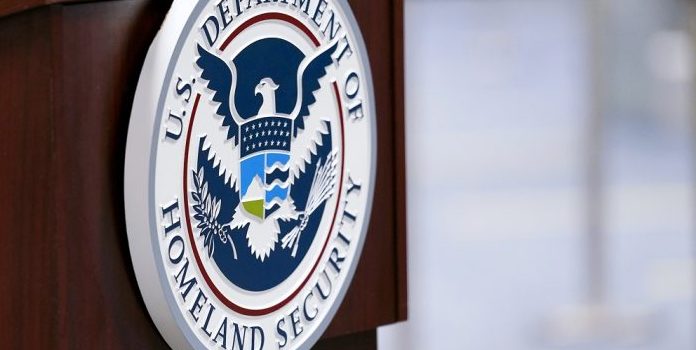(Ken Silva, Headline USA) A coalition of 40 pro-privacy groups have sent a letter to the U.S. Senate and House appropriations committees, urging them to defund the Department of Homeland Security’s Center for Prevention Programs and Partnerships, or CP3—a controversial initiative described by activists as a pre-crime program.
First announced in May 2021, CP3 is touted by DHS officials as a way to expand the department’s ability to prevent terrorism and targeted violence “through the development of local prevention frameworks.” In practice, this has resulted in the DHS distributing tens of millions of dollars in grants to local universities, healthcare organization, non-profits and law enforcement centers.
The DHS’s new initiative came on the heels of a March intelligence community report, which deemed white supremacy and violent domestic extremism as the most dangerous terror threat to the country.
To their credit, left-leaning privacy activists have opposed CP3, even when the DHS unveiled it as an ostensible way to combat “white supremacy.” According to those privacy activists, the DHS’s initiative amounts to a pre-crime program.
“CP3’s attempts to predict future crimes are to be based on behavioral patterns— i.e., profiling—and on encouraging members of the public to inform on their families, friends, and classmates,” Ed Hasbrouck, a consultant to the nonprofit Identity Project, wrote when CP3 was first announced.
“The problem, of course, is that the law does not permit prosecution based solely on patterns of lawful behavior. With good reason: ‘precrime’ prediction is a figment of the imagination of the creators of a dystopian fantasy movie, Minority Report.”
In their Wednesday letter to the House and Senate appropriations committees, the 40 pro-privacy groups agreed with Hasbrouck. The groups—which included the ACLU, Electronic Privacy Information Center and Muslims for Liberty—said CP3 is “wasteful, providing no security benefits and actively undermining civil rights, civil liberties, and privacy.”
The groups explained that the DHS’s initiative is relying on the discredited “radicalization” theory—the false idea that there are reliable predictive risk indicators demonstrating that someone is on a path to violence.
“Government-identified behavioral indicators have included communicating that one is in distress, deviating from one’s routine, isolation, economic stress, paying off debts, or being preoccupied with a person, place, belief, or cause. They are often commonplace, innocuous, or otherwise easily explained,” the groups said.
The privacy groups also raised concerns about the DHS’s venture into a nebulous “public health” behavioral threat assessment model.
“This new model has grantees train mental health professionals to carry out law enforcement functions such as identifying and reporting perceived threats, and turning clinics and medical assessments into sites of surveillance,” the groups said.
“Roping health and welfare groups into performing policing functions also compromises the willingness of patients, especially those coming from vulnerable populations, to seek crucial health care for fear of being surveilled by or reported to law enforcement.”
Additionally, the groups flagged the DHS’s new category of crime called “targeted violence.” The department has apparently created this category because the term “terrorism” doesn’t cover events such as mass shootings.
“The scope of targeted violence would cover crimes as disparate as school shootings, mass shootings, sabotaging oil pipelines and hate crimes in the same category, applying to these different behaviors the same debunked framework,” the groups warned.
“CP3 stigmatizes and delegitimizes innocent people based on what they think or who they know. Expansive criteria for who might be considered dangerous invites easily abused discretion into violence prevention,” the groups concluded. “The program is antithetical to the rights of all Americans to worship, associate, and believe freely as secured by the First Amendment.”
Ken Silva is a staff writer at Headline USA. Follow him at twitter.com/jd_cashless.

